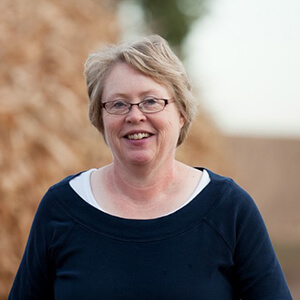

The life and business of farming is so unique and really hard to describe to anyone who is not from the farming community. I have taken the liberty to enlighten our elected officials on a few attributes about farmers. I enlisted help from a few of my farmer Facebook followers when I asked them what they thought you should know.
FARMING IS HARD
It’s not just the physical and time-laden work, but the financial and emotional stress that is almost continuous. We are always looking around the next corner for the next interrupter, whether that means markets, livestock health, crop conditions, or other unforeseen bombshells. The majority of people could not and would not endure the gambling game farming is. It’s only the love and passion of growing food that keeps us moving. There are many times I think we are crazy for enduring all the difficulties of farming.
FAIR PRICE AND LEVEL PLAYING FIELD
Despite what is assumed, farmers don’t want handouts. All farmers want is a fair price for what they produce. Unfortunately, there are many factors that are out of the control of farmers that try and disrupt the process of producing food. In those cases, farmers are thankful for government assistance received due to the COVID pandemic. The agriculture world would have been decimated without it. Again, all we ask is for an even playing field. American farmers are some of the very best in the world and can compete on a level-playing field.
CLIMATE CHANGE
I know climate change is at the top of many elected officials’ priority list. Farmers continually look for better and more efficient ways to farm. Over the years, agriculture has made many changes to be more efficient and climate-friendly. Is there room for improvement? Yes, there always is but be assured we are making changes for a better future just as we always have. One such advancement is biofuels (corn and soybeans). Making the change to E15 (ethanol) improves the environment because it burns cleaner and is a renewable resource. Good for the earth. Good for farmers.
ANIMAL AGRICULTURE
Agriculture, particularly animal agriculture, is a very small part of the problem when it comes to climate change, yet nearly all the blame is laid at our feet. Many of the studies suggesting meat consumption is a sweeping environmental issue are deeply flawed. I would suggest you look closer at these studies and research all the benefits of animal agriculture before endorsing the “green new deal” or any similar legislation. (credit to Emily Fox)
May I make one suggestion in regards to people to contact for animal agriculture (especially beef cattle)? Dr. Frank Mitloehner, UC Davis Professor & Air Quality CE Specialist, Dept Animal Science; Director, CLEAR Center, is the perfect person to contact for science-based research in regards to cattle’s impact on the environment. Even though there is room for improvement, beef cattle are not nearly the environmental monsters many make them out to be. Dr. Mithoener Twitter account: @ghguru
AGRICULTURE’S VOICE
As a farmer who only makes up less than 2% of the population, I feel like we don’t have the clout and voice we should. Please visit a farm and work directly with farmers. It seems there is always a hidden agenda (and not necessarily pro-agriculture) as more people become involved in ag issues. We are leery when we are told we need more government oversight and involvement. More times than not, more government is not the answer. Limit unnecessary regulations and taxes. We also don’t want to be in a position where we have to say, “we told you so” because no one listened.
NEXT GENERATION OF FARMERS
There needs to be a way to help the next generation of farmers. Farmers are asset rich and cash poor. It takes a lot of capital resources to farm due to the astronomical land and machinery costs. There are many years where farms either break even or lose money even though farmers the assets may be valuable. So, how do we encourage young people to farm in such volatile times? We need solutions to allow the next generation to keep the land in the family. Keep farmers in mind as you push additional taxes and regulations, especially during farm transitions and the fear of eliminating the step-up basis. They almost always result in unintended (or intended) consequences.
WE NEED ALL TYPES OF FARMERS
Also, there is not one way to farm and that with the geographical differences in the U.S., each type of farm is impacted in different ways. For example, dairy and crop farmers in the Midwest are not impacted by the same water issues as California. We need big/small, conventional/organic. I’d share that on any given day, the range of expertise that a farmer has to exhibit is extraordinary. Every farmer has to know how to deal with basics and messiness (a clogged manure pipe that might take bare hands to unplug) to interpreting GPS field maps that show where to spoon-feed fertilizer and help prevent nitrogen runoff. From earthy labor-intensive to as high-tech as NASA, that’s American food production. (credit to Paula Mohr contribution)
As I wrap up this letter, I want to assure you farmers are not looking for a trophy or even a pat on the back. Just don’t stab us in the back. My biggest piece of advice is to connect and listen to farmers. Please allow us to have a voice. Please think twice about new taxes and regulations that may prohibit future farmers because we will need them.




